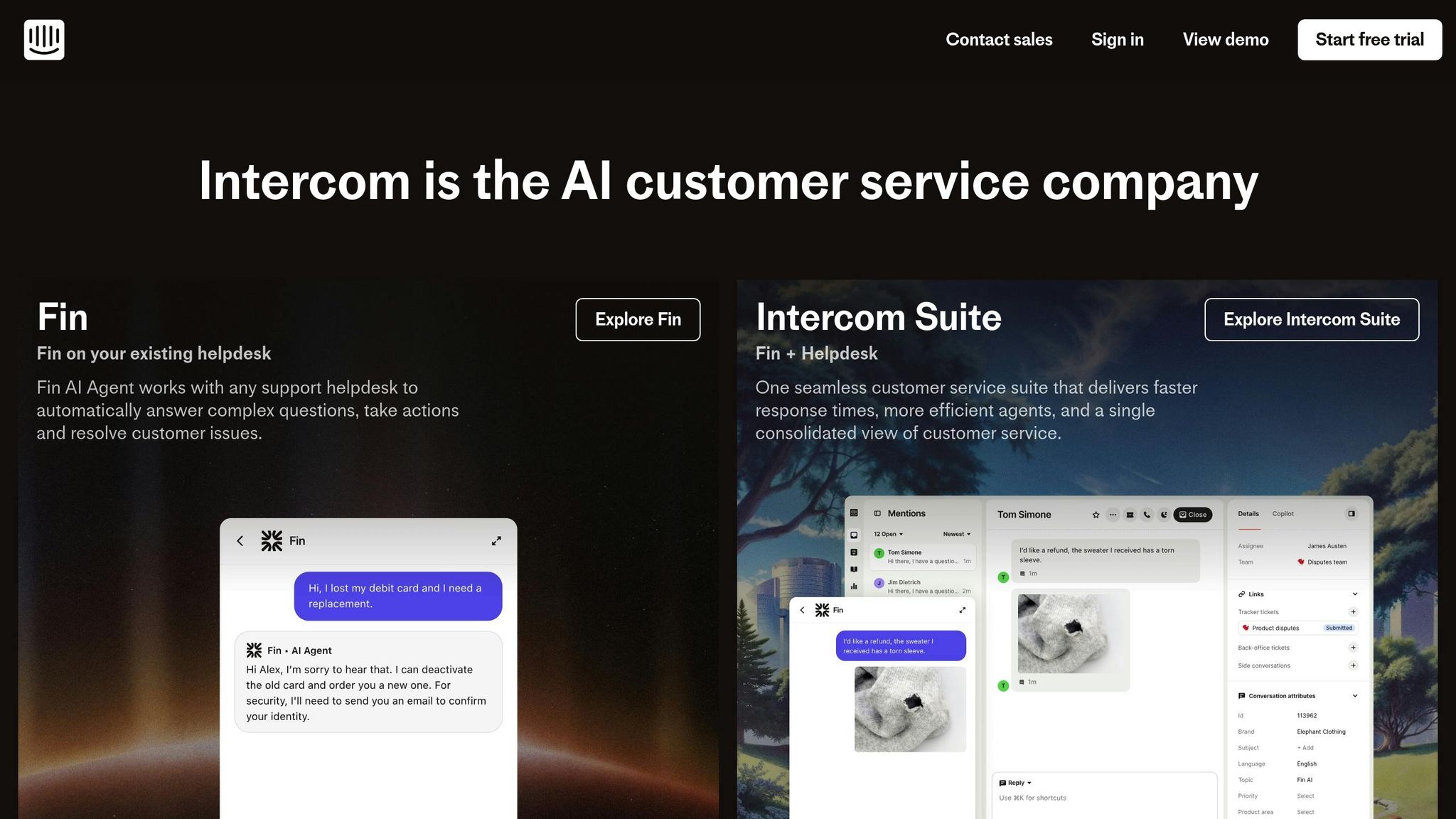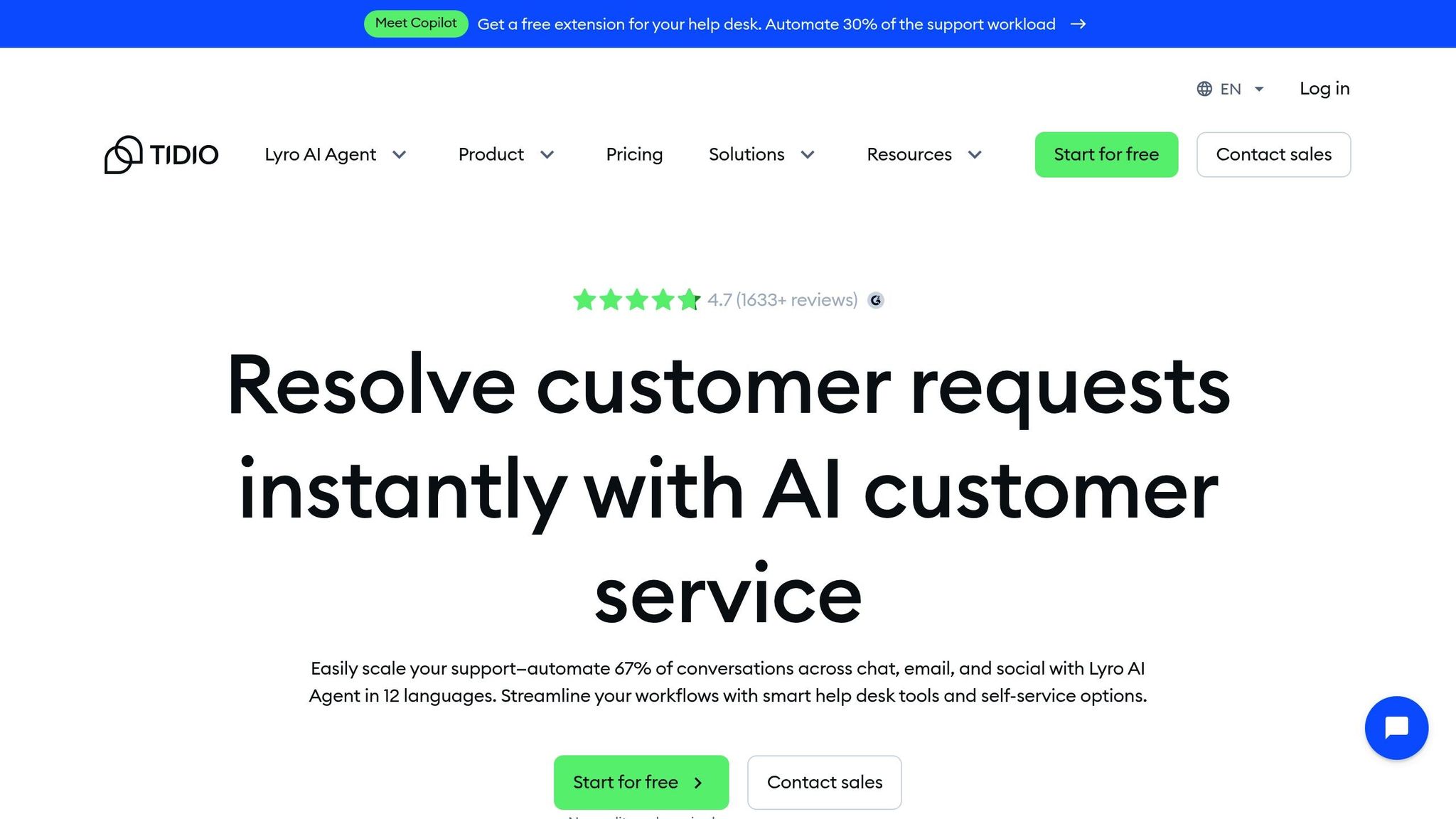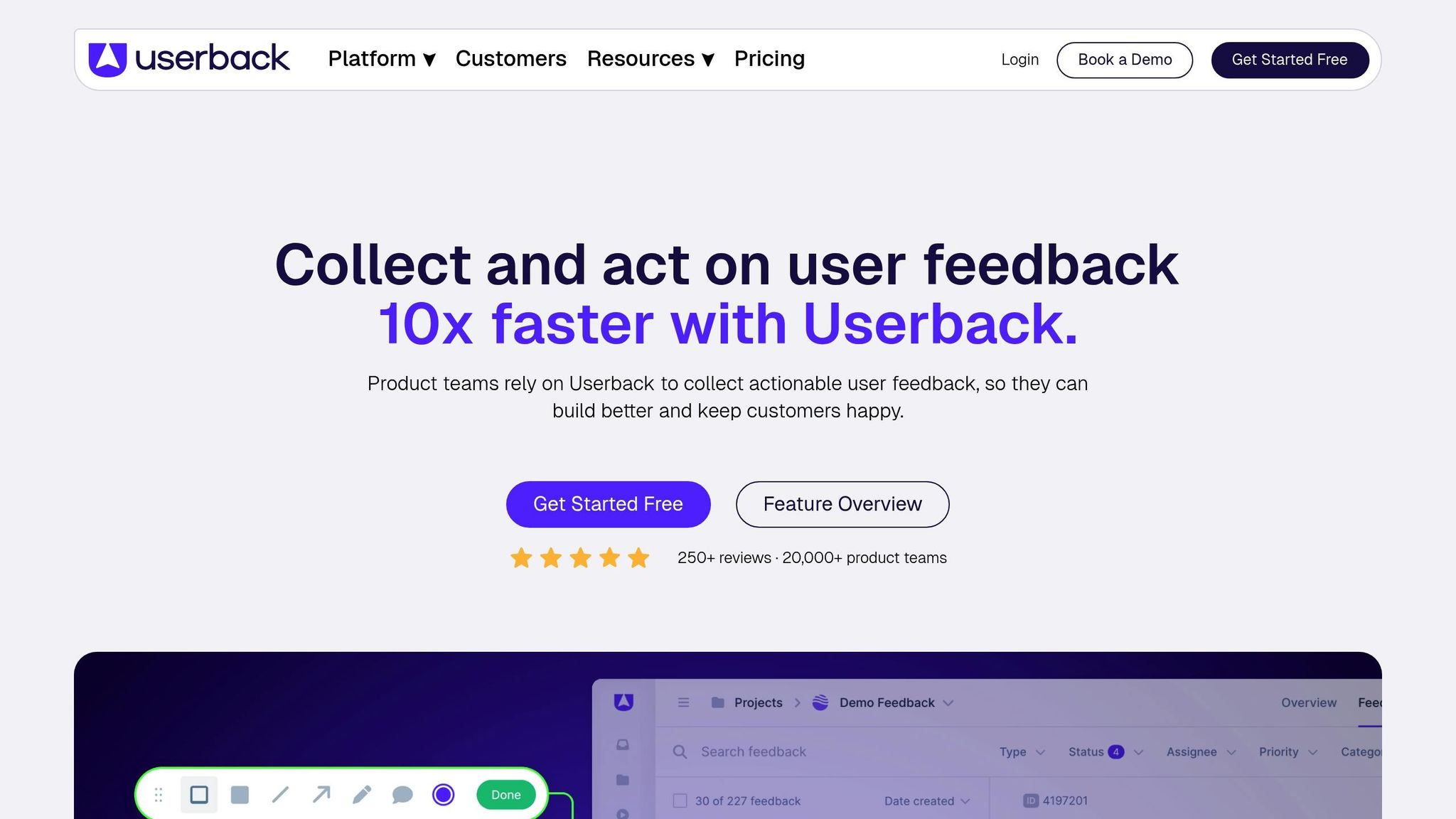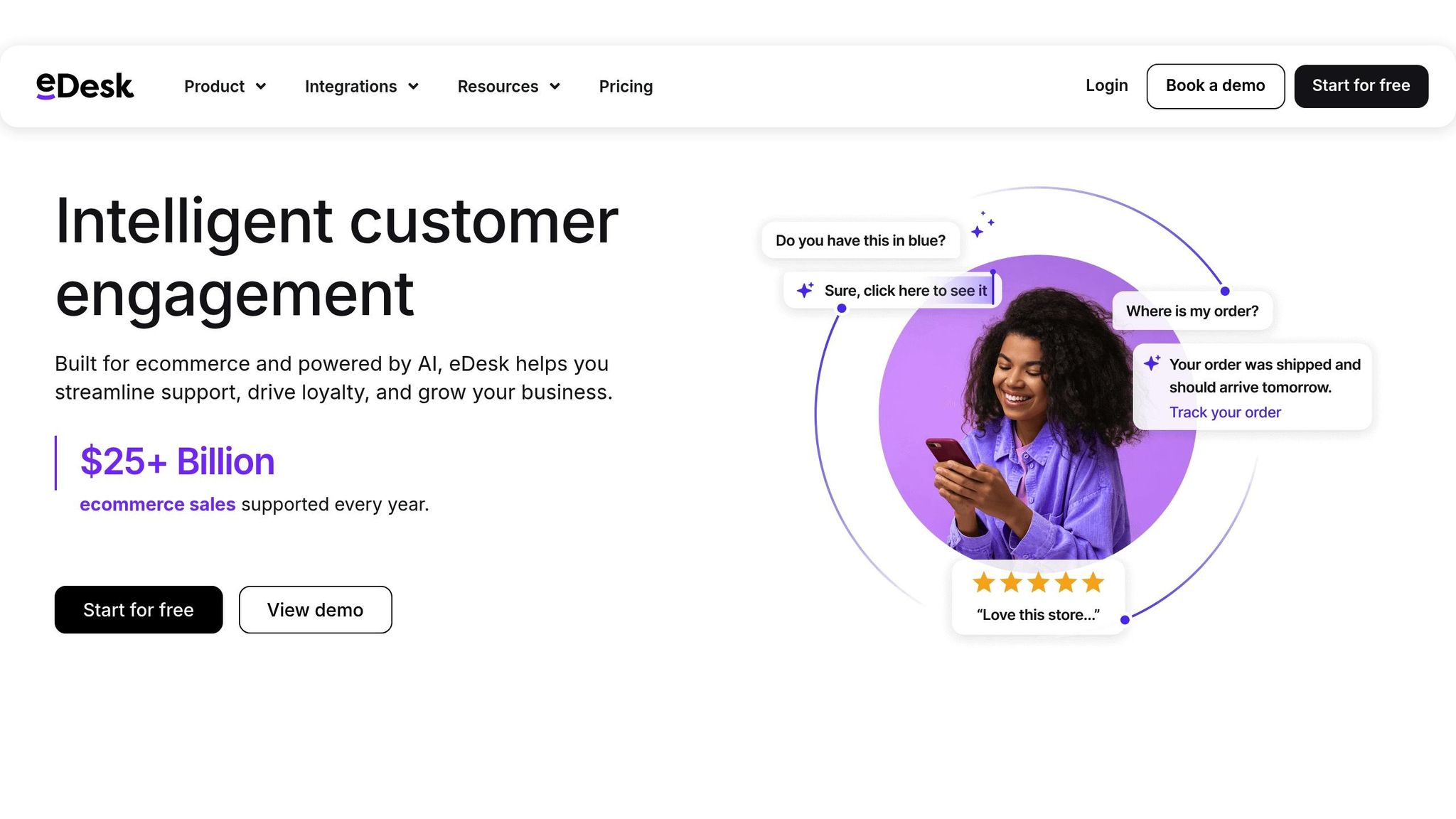
Customer Feedback Analysis Tools with Multi-Language Support: 7 Best AI Solutions
Stop losing 65% of international customer insights to language barriers. These AI tools turn multilingual feedback into actionable data.

Written by
Adam Stewart
Key Points
- Boost retention 73% higher with native language customer support
- Capture voice feedback from the 80% who won't leave voicemails
- Analyze cultural context beyond basic translation for accurate insights
- Compare 7 AI solutions that handle sentiment across 50+ languages
Customer feedback analysis tools with multi-language support have become essential for businesses serving global markets. With 75% of customers more likely to purchase from companies offering support in their native language, analyzing feedback across multiple languages isn't optional anymore - it's critical for growth.
The challenge? Feedback arrives in dozens of languages through surveys, reviews, social media, phone calls, and support tickets. Traditional translation methods can't keep pace, and they miss crucial context like cultural nuances and emotional undertones. AI-powered multilingual feedback analysis solves this problem.
Here are 7 AI tools that excel at analyzing customer feedback across languages:
- Dialzara: An AI phone answering service that captures voice feedback in multiple languages with 6,000+ app integrations.
- Intercom: Enterprise messaging platform with instant translation for 38+ languages and advanced workflows.
- Tidio: Live chat tool with automatic language detection and sentiment analysis for 12+ languages.
- Userback: Visual feedback platform with multilingual widgets and sentiment categorization.
- eDesk: E-commerce customer service tool with AI-powered translations and advanced sentiment analysis.
- Forethought: AI platform offering support in 28 languages with 96% sentiment prediction accuracy.
- Synthesia: Video platform for multilingual content creation supporting 140+ languages.
Quick comparison: Customer feedback analysis tools with multi-language support
| Tool | Languages Supported | Translation Accuracy | Sentiment Analysis | Key Integrations | Starting Price |
|---|---|---|---|---|---|
| Dialzara | Multiple (voice-based) | High | Context-aware | 6,000+ apps via Zapier | $29/month |
| Intercom | 38+ | Reliable | Basic | Slack, Salesforce, HubSpot | $39/month per seat |
| Tidio | 12+ | Moderate | Basic | Shopify, WordPress, Wix | Free, $29/month+ |
| Userback | Multiple | Reliable | Limited | Jira, Trello, Slack | $29/month for 5 users |
| eDesk | Multiple | High | Advanced | Amazon, Shopify, Magento | $49/month per user |
| Forethought | 28+ | High | Advanced | Zendesk, Salesforce, ServiceNow | Custom pricing |
| Synthesia | 140+ | High | Not applicable | Intercom, HubSpot, WordPress | $18/month annually |
sbb-itb-ef0082b
Why multi-language feedback analysis matters now
The global customer experience management market is projected to grow from $16.91 billion in 2023 to $52.54 billion by 2030. Yet according to the U.S. Bureau of Labor Statistics, only 35% of companies use multilingual sentiment analysis solutions - even though over 60% of global customers engage with brands in their native language.
This gap represents a massive opportunity. Businesses offering multilingual support enjoy 73% higher customer retention rates compared to single-language competitors. Companies with well-executed localization strategies also experience 25% higher customer retention in international markets.
The key insight? Analyzing multilingual feedback goes beyond simple translation. Cultural context shapes how people express satisfaction or frustration. A Japanese customer might say "there is room for improvement" when they're actually quite dissatisfied, while an American customer would state the same concern directly. AI feedback tools need to understand these nuances.
1. Dialzara: Voice-based multilingual feedback capture

Dialzara stands out by focusing on voice-based feedback - a channel most competitors overlook. With 62% of calls to local businesses going unanswered, Dialzara's AI-powered phone answering service captures feedback that would otherwise be lost.
The platform operates 24/7, greeting callers in their preferred language and gathering essential feedback data. This matters because 80% of callers won't leave a voicemail when their call goes unanswered - they simply move on to a competitor.
How Dialzara handles multilingual feedback
Dialzara's AI adapts to multiple languages and learns industry-specific terminology. Businesses upload training materials, call scripts, and recordings to the platform's Knowledge Base. This allows the AI to understand specific communication patterns and maintain consistent brand voice across languages.
The system uses machine learning and natural language processing to capture conversation nuances like tone and context. After each call, businesses receive detailed summaries with recordings and transcriptions - creating a searchable database for analyzing feedback trends across different languages and regions.
Integration and pricing
Dialzara connects with over 6,000 apps via Zapier, making it easy to route multilingual feedback into your existing CRM, helpdesk, or analytics tools. Check out the full feature list to see all capabilities.
Pricing starts at $29/month for Business Lite, $99/month for Business Pro, and $199/month for Business Plus. These plans can reduce costs by up to 90% compared to traditional answering services while handling growing volumes of customer inquiries.
"One of the best return on investments I've ever made!"
2. Intercom: Enterprise multilingual messaging platform

Intercom functions as an enterprise messaging platform designed for high-volume customer communication. Research shows 88% of support teams assist users in multiple languages, but only 28% of customers actually receive help in their native language. Intercom addresses this gap with automated translation and intelligent routing.
Multilingual capabilities
Intercom automatically detects languages and provides instant translation for over 38 languages through its Custom Bots. The platform's Articles feature translates help center content automatically and delivers it based on customer language preferences - reducing ticket volumes while improving satisfaction.
In Q1 2025, Intercom introduced AI Inbox Translation and Multilingual Workflows that work alongside the Fin AI Agent. For enhanced translation quality, the platform integrates with services like Unbabel and Lokalise.
"Lingpad integrates easily with our CRM system, allowing us to translate messages from customers in any language and send replies directly. Our team has been able to improve efficiency and respond accurately." - Julia, Particle for Men
Integration ecosystem
Through Zapier, businesses connect Intercom with thousands of apps for automated workflows. The multilingual workflows (currently in beta) automatically translate chat messages and reply buttons, eliminating language barriers between agents and customers.
3. Tidio: Multilingual chat for small businesses

Tidio offers accessible AI feedback tools particularly suited for small and medium businesses. With nearly 60% of shoppers avoiding English-only websites, Tidio's multilingual features help companies connect with global audiences without enterprise-level budgets.
Language support and detection
Tidio's Lyro AI chatbot supports twelve languages including English, French, Italian, Spanish, Portuguese, and German. The platform automatically adapts the chat widget to match visitor browser language and routes queries to language-specific teams through its Departments feature.
The AI Phrase Matcher identifies customer intent in real-time across eight languages, while Lyro continuously improves translation quality through ongoing interactions.
Sentiment analysis capabilities
Beyond translation, Tidio analyzes customer sentiment with a Net Emotional Footprint of +98. Its satisfaction tools collect feedback through customizable rating surveys, providing actionable insights into how international customers perceive your service.
E-commerce integrations
Tidio integrates with Shopify, WordPress, WooCommerce, and BigCommerce for direct feedback collection from sales channels. Email marketing integrations with Klaviyo and Mailchimp enable targeted follow-up campaigns based on feedback data.
4. Userback: Visual feedback with multilingual widgets

Userback takes a unique approach by focusing on visual feedback collection. With ratings of 4.8/5 overall and 4.7/5 for ease of use, it's designed for product teams needing detailed user input across global markets.
Multilingual feedback widgets
Userback's feedback widget supports multiple European and Asian languages with dynamic language switching. The widget automatically adapts to user preferences, though custom text requires manual localization for branded messaging.
Sentiment categorization
Using natural language processing, Userback categorizes feedback as positive, negative, or neutral across supported languages. This sentiment analysis integrates with visual feedback tools, giving teams deeper understanding of both what users say and how they feel about their experiences.
Development team integrations
Userback connects with over 25 platforms including Jira, GitHub, GitLab, and Azure DevOps for development workflows. Project managers can route feedback to Asana, Monday.com, Trello, or Notion. The REST API and webhooks support custom integrations for unique requirements.
"Userback is the bridge between our product and our users. It's not just a tool - it's an extension of our commitment to our customers." - Ash Bettridge, Founder & CEO, Matilda Workspace
5. eDesk: Multi-language feedback analysis for e-commerce

eDesk ranks among the top solutions for e-commerce businesses. Processing over 50 million messages monthly with a 4.6/5 star rating, it's built specifically for online retailers managing global customer communication.
AI translation for e-commerce
eDesk's AI Translation automatically detects incoming message languages and translates them for agents. Agents can respond in the customer's language, their own language, or switch between languages as needed. The system delivers translations up to 30% more accurate than earlier methods, with domain-specific capabilities for technical product queries.
"With the options we have on eDesk, it's now so much easier to provide multilingual support. We can auto-translate so it's not always necessary to speak the customer's language, allowing us to provide support in languages we do not cover in-house." - Irene Epp, Service Delivery Manager at Pertemba
Advanced sentiment analysis
eDesk goes beyond basic positive/negative classification. Its sentiment analysis helps identify frustrated customers who need immediate attention, satisfied customers ready for upsells, and feedback trends across different regional markets.
Marketplace integrations
The platform connects with over 200 platforms including Amazon, eBay, Shopify, Magento, and social channels like Facebook, Instagram, and WhatsApp. Klaviyo integration enables personalized campaigns based on customer service data - like excluding customers with unresolved tickets from promotions.
AI Translation is available as an add-on starting at $21 per user per month, with the base platform starting at $39 per month.
6. Forethought: Enterprise-grade multilingual AI

Forethought delivers enterprise-grade AI with autonomous task execution. It's designed for organizations needing sophisticated customer service automation across multiple languages and regions.
Extensive language coverage
Forethought supports 28 languages with instant workflow translation into 16 of them. Administrators can fine-tune translations as needed. The Discover feature classifies and analyzes tickets in 36 languages, while dedicated phone numbers enable localized voice support for different language markets.
Supported languages include Arabic, Chinese (Simplified and Traditional), French, German, Japanese, Korean, Spanish, Portuguese, Russian, and Hindi.
Sentiment prediction accuracy
Forethought's AI predicts customer sentiment with 96% accuracy for Kickfin and 90% for UpWork. This enables intelligent routing based on sentiment, location, industry, and product details. The Solve feature adapts to language changes mid-conversation for smooth multilingual interactions.
"Something I really like about Forethought is that other companies think they do AI, but they're really AI-driven chatbots. With Forethought, the AI knows where the customer needs to go. It makes it quicker, easier, and clearer for customers to engage with us." - Dustin Auman, Operations Manager
Enterprise integrations
Forethought integrates with over 70 helpdesk systems including Salesforce, Zendesk, Intercom, Freshdesk, ServiceNow, and Jira. Popular connections include HubSpot, Shopify, Confluence, Google Drive, Notion, and SharePoint. iFIT uses Solve to deflect 33% of customer chats through its widget.
7. Synthesia: Multilingual video responses

Synthesia approaches multilingual feedback differently through video-based communication. While not a traditional feedback analysis platform, it enables businesses to respond to customer feedback through personalized multilingual video content.
Video translation at scale
Synthesia supports over 140 languages and accents, with AI video translation into 29+ languages. The One-Click Translation feature automatically translates scripts and on-screen text simultaneously. AI dubbing reduces video translation costs by up to 90% compared to traditional studio methods while maintaining natural lip-syncing.
Teleperformance used Synthesia to create training videos in 27 languages, significantly improving employee understanding through native-language content.
Customer communication applications
Businesses use Synthesia to create multilingual feedback responses, training materials, and customer communication videos. A multinational retailer managing inquiries across 20+ languages achieved a 40% boost in customer engagement and 30% reduction in response times using Synthesia's text-to-speech technology.
Integration and pricing
Synthesia integrates with Intercom, HubSpot, and WordPress for embedding multilingual video responses into existing workflows. Workato automation extends these capabilities further. Plans start at $18/month (annual) or $29/month (monthly), with enterprise options available.
How to choose customer feedback analysis tools with multi-language support
Selecting the right solution depends on your specific business needs. Consider these factors:
Feedback channel coverage
Where does your customer feedback arrive? If most feedback comes through phone calls, Dialzara's voice-based approach makes sense. For text-heavy channels like chat and email, Intercom or Tidio may be better fits. E-commerce businesses managing marketplace reviews should prioritize eDesk's specialized integrations.
Cultural context detection
Basic translation isn't enough. Look for tools that understand cultural nuances - the difference between Japanese indirect feedback and American direct communication, for example. Forethought's 96% sentiment accuracy suggests strong cultural context awareness.
Integration requirements
Consider your existing tech stack. Dialzara's 6,000+ Zapier integrations offer maximum flexibility, while eDesk's 200+ e-commerce platform connections suit online retailers. For healthcare or legal services, ensure compliance features meet industry requirements.
Budget and scale
Pricing varies significantly. Tidio offers a free plan for testing, while Forethought requires custom enterprise pricing. Dialzara's $29/month starting point provides accessible entry for small businesses. Calculate ROI based on your current missed feedback costs - language barriers have cost global executives $8-11 million annually.
The business case for multilingual feedback analysis
Investing in these tools delivers measurable returns:
- 73% higher retention: Businesses with multilingual support keep customers longer
- 75% purchase likelihood: Customers buy more from brands supporting their native language
- 25% revenue growth: McKinsey reports this for companies with hyper-personalized CX strategies
- 20% faster response times: AI-powered translation eliminates manual bottlenecks
Real-time sentiment analysis achieves 25% improvement in lead quality and up to 20% increase in sales. A telecom company using multi-language AI for tailored support saw 20% higher customer retention rates.
Common challenges with multilingual feedback analysis
Even the best AI tools face limitations worth understanding:
Sarcasm and cultural references
Sentiment analysis algorithms struggle with sarcasm, cultural references, and slang. A sarcastic "great job" might be misclassified as positive feedback. Human review remains important for nuanced cases.
Language-specific accuracy variations
Most tools perform better with widely-spoken languages like English, Spanish, and Mandarin. Less common languages may have lower accuracy. Test tools with your specific language requirements before committing.
Regional dialect differences
Spanish spoken in Mexico differs from Spanish in Spain. Portuguese in Brazil differs from Portugal. Ensure your chosen tool handles regional variations relevant to your customer base.
Choosing the right customer feedback analysis tools with multi-language support
The right customer feedback analysis tools with multi-language support transform how you understand global customers. From Dialzara's voice-based feedback capture to Forethought's enterprise sentiment analysis, each tool offers distinct advantages for different business needs.
Key takeaways for choosing your solution:
- Match the tool to your primary feedback channels (voice, chat, reviews, surveys)
- Prioritize cultural context detection over basic translation
- Ensure integration with your existing CRM and analytics tools
- Calculate ROI based on current missed feedback and language barrier costs
Success requires balancing AI efficiency with human oversight. As Jackie Xu from Callnovo notes:
"Although 80 percent can be replaced by AI, 20 or 10 percent still must be handled by a human being for complex issues. Customers need empathy, they need compassion."
By integrating these advanced AI solutions, businesses can deliver secure, compliant, and culturally aware interactions that drive satisfaction and growth across all markets.
Ready to capture multilingual customer feedback without missing a call? Try Dialzara free for 7 days and see how AI-powered phone answering transforms your global customer communication.
FAQs
How can AI tools enhance the accuracy and speed of analyzing multilingual customer feedback?
AI tools process and interpret multiple languages simultaneously using advanced algorithms and machine learning. They spot patterns, extract key insights, and understand customer sentiments regardless of language - all in real-time.
These systems rely on extensive multilingual datasets for precise, scalable analysis. This makes tracking trends and responding to concerns across regions much faster than manual translation methods. Many AI tools work in real-time, enabling quick action on feedback for faster decisions and happier customers.
What should businesses look for in an AI tool to manage multilingual customer feedback effectively?
Focus on precise language support, cultural nuance sensitivity, and ease of use. The tool should handle multiple languages while preserving subtleties that affect meaning - ensuring communication remains clear and respectful across diverse audiences.
Also evaluate scalability, system compatibility, and customization options for your specific needs. A straightforward interface and reliable performance simplify global customer service and improve overall experience.
How do integration features improve AI tools for multilingual customer feedback?
Integration features enable real-time translation, natural language processing, and sentiment analysis within your existing workflows. When connected to CRM platforms or analytics tools, these integrations create smooth processes for scaling support and personalizing interactions.
Businesses maintain excellent service quality across languages without increasing complexity or expenses. The data flows automatically to where teams need it for follow-up and analysis.
Summarize with AI
Related Posts
Voice Sentiment Analysis: 7 Techniques That Help AI Understand Emotions
Explore seven key techniques in voice AI sentiment analysis that enhance customer interactions by understanding emotions in real time.
7 Best Practices for AI Customer Feedback Analysis
Learn the 7 best practices for AI customer feedback analysis, including setting up clear channels, using NLP for sentiment analysis, and connecting feedback analysis with other systems.
10 Best AI Platforms for Multilingual Customer Support in 2025
Discover the top 10 AI platforms for multilingual customer support in 2024, including Avaamo, Helpshift, Summa Linguae Technologies, Lokalise AI, ChatGPT, DeepL, Google Translate, Bing Microsoft Translator, Smartling, and Intercom.
AI Transforms Multilingual Customer Support: 2024 Guide
Discover how AI transforms multilingual customer support in 2024. Learn about key benefits, technologies, challenges, and the future of AI-powered customer service globally.
